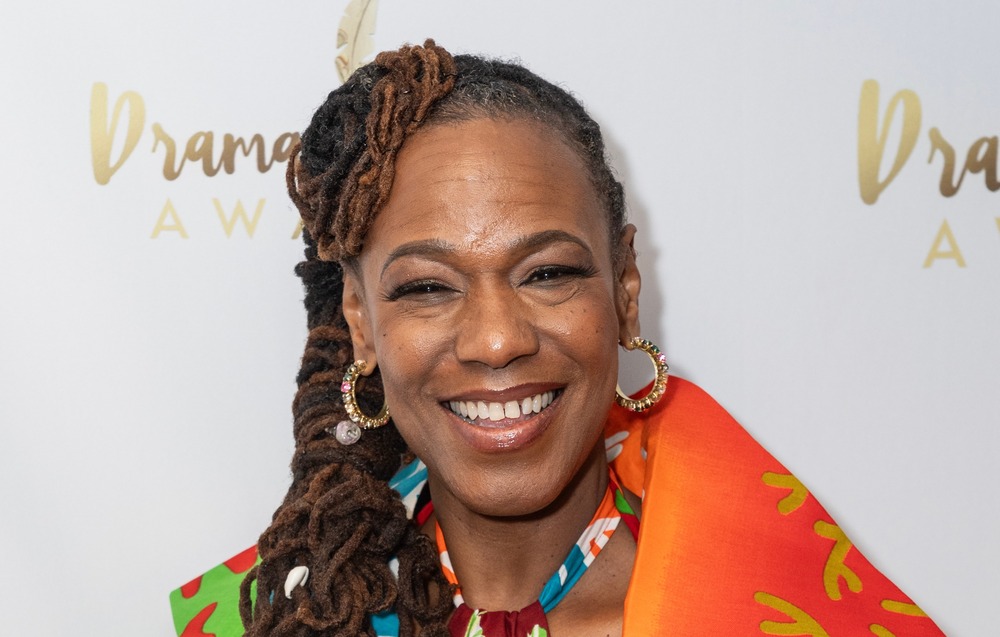In a bold move that has captured the attention of the theater community, Kecia Lewis, a celebrated star of Hell’s Kitchen, has publicly demanded an apology from Broadway legend Patti LuPone. This call for accountability stems from LuPone’s recent comments about the musical, which Lewis has characterized as “bullying” and “racially microaggressive.” The incident has sparked a broader conversation about microaggressions in the arts and the importance of community among performers.
The incident: A call for apology
Lewis, 59, took to her Instagram to share a heartfelt five-minute video addressed to LuPone, 75. In her message, Lewis expressed her discontent with LuPone’s remarks regarding the sound levels of Hell’s Kitchen, which LuPone described as “too loud.” Lewis emphasized that her comments were her own and did not represent the views of the cast or crew.
In her video, Lewis recounted how LuPone had contacted the owner of the Shubert Theatre to request changes to the sound design of Hell’s Kitchen. Following these adjustments, LuPone reportedly sent flowers to the sound and stage management team, thanking them for their efforts. However, Lewis pointed out that LuPone also publicly dismissed a fan’s request for her to sign a Hell’s Kitchen playbill, stating, “I’m not signing a Hell’s Kitchen, they’re too loud.” This behavior, Lewis argues, is not only rude but also indicative of a deeper issue of privilege and insensitivity.
Understanding microaggressions
In her video, Lewis took the opportunity to educate viewers about the concept of microaggressions. She defined them as subtle, often unintentional comments or actions that convey stereotypes or biases based on race. While these remarks may seem harmless, they can accumulate and lead to significant stress for those on the receiving end.
Lewis explained, “Referring to a predominantly Black Broadway show as loud can reinforce harmful stereotypes and feels dismissive of the artistry being celebrated on stage.” She highlighted that while gestures like sending flowers may appear courteous, they can come off as out of touch, especially after making a complaint that affects an entire production.
The role of community in the arts
The Broadway community is known for its collaborative spirit, and Lewis emphasized the need for mutual respect among its members. She pointed out that Hell’s Kitchen, written by Alicia Keys, features a predominantly Black cast and tells a story rooted in the experiences of the Black community in New York City.
Lewis expressed her concerns about LuPone’s actions, suggesting that sending thank-you flowers after impacting the production could be perceived as disingenuous. “If your actions come across as undermining or asserting control over a neighboring production, they can certainly be seen as crossing into bullying behavior, even if it’s unintentional,” she stated.
In closing her video, Lewis called for a culture of respect and collaboration within the Broadway community. “On Broadway, we are not just neighbors, Ms. LuPone. We are a community that shares in each other’s artistry and challenges. Respect and collaboration are what keep us thriving and inspire the next generation,” she said. “Ms. LuPone, I respectfully submit to you that you owe us an apology, not flowers.”
A call for change
The exchange between Lewis and LuPone highlights the ongoing need for dialogue about race and respect within the arts. As the theater community continues to evolve, it is crucial for artists to engage in meaningful conversations about their impact on one another and the narratives they promote. Lewis’ call for an apology is not just about one incident; it represents a larger movement towards accountability and understanding in the arts.
As audiences and artists alike reflect on these issues, it becomes clear that fostering a supportive and inclusive environment is essential for the continued growth and success of Broadway and beyond.















